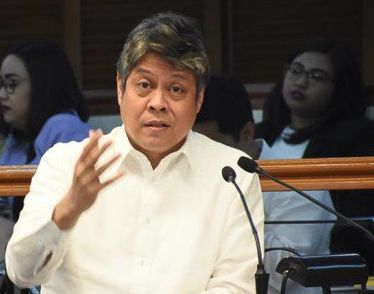Pangilinan: Where are the gov’t post-harvest facilities?

Sen. Francis “Kiko” Pangilinan. INQUIRER file photo
The government should provide solutions to the needs of farmers instead of penalizing the small folks for drying palay (unhusked rice) on national roads, Senator Francis “Kiko” Pangilinan said Friday.
On November 8, the Department of Public Works and Highways reminded the public that drying farm produce on national roads is “totally banned in order to safeguard motorists from any untoward incident.”
The DPWH also cited orders issued in 2003 and 2013 to enforce 1972 Presidential Decree No. 17, which imposes a fine of not more than P1,000 and imprisonment of not more than six months against violators.
READ: Gov’t told: Why punish farmers for your shortcoming?
Pangilinan said this order was “insulting” and reflects the agency’s “ignorance on how our farmers are doing.”
The senator, a former Presidential Assistant for Food Security and Agricultural Modernization, then asked: “Where are the post-harvest facilities the government promised?”
“Don’t pick on the small folk, provide solutions for their needs, not only for them but also for all of us they feed,” he added.
Pangilinan also said if there were public mechanical drying systems, especially those that harness solar energy, Filipino farmers would not dry their palay on cemented roads “because they know, this is not efficient, that many of their palay get wasted.”
The lawmaker said the government knows this as well.
“According to its 2010 study, 5.9% of the harvested palay is wasted because of inefficient drying methods,” he cited.
“If our rice production for the year is about 13 million metric tons [a Food and Agriculture Organization estimate], that is equivalent to 767,000 metric tons of palay! If all of that is milled properly without waste, that is equivalent to 767 million kilos of rice. With 100 million Filipinos, each would have more than 7 kilos of rice,” Pangilinan explained. /jpv